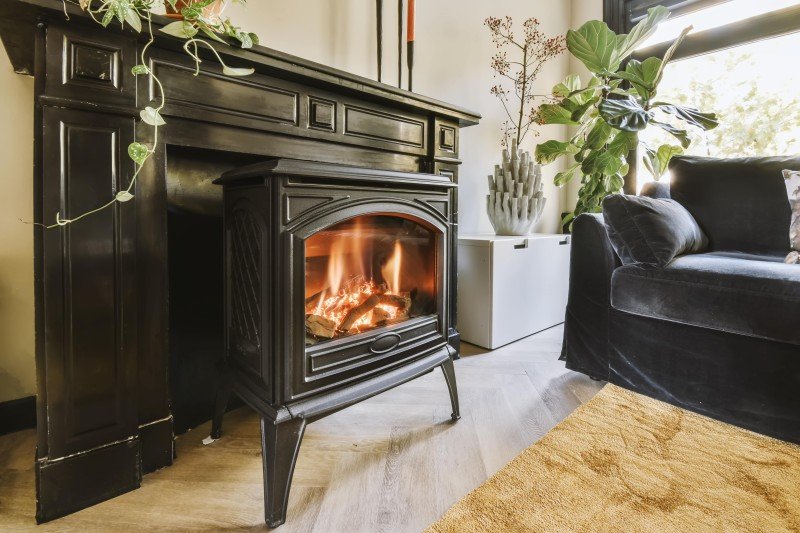Best Value Fireplaces: An In-Depth Guide
The fireplace has actually long been considered as the heart of a home, providing warmth, atmosphere, and a centerpiece for social gatherings. However, browsing through various options can be frustrating, specifically with budget plan restrictions in mind. click for source presents a useful guide on the best value fireplaces, detailing their types, features, and advantages to assist property owners make a smart option.
Kinds of Fireplaces
Fireplaces come in a variety of styles and types, each with different characteristics, costs, and benefits. Here's a comprehensive take a look at the most typical kinds of fireplaces offered in the market today.
| Kind of Fireplace | Description | Average Cost | Pros | Cons |
|---|---|---|---|---|
| Wood-Burning | Burn logs to produce heat and atmosphere. | ₤ 1,500 - ₤ 5,000 | Authentic experience, natural heat | Requires routine upkeep, less efficient |
| Gas Fireplaces | Utilizes natural gas or propane to produce heat. | ₤ 2,000 - ₤ 5,000 | Easy to utilize, cleaner than wood | Restricted to gas supply, installation expenses |
| Electric Fireplaces | Simulates flames with LED innovation and produces heat through electrical power. | ₤ 200 - ₤ 3,000 | Easy setup, installation versatility | Less genuine feel, higher operating expense |
| Pellet Stoves | Use compressed wood or biomass pellets, supplying an environment-friendly option. | ₤ 3,000 - ₤ 4,500 | Efficient, low emissions | Requirements electrical energy to run, requires storage for pellets |
| Ethanol Fireplaces | Burns ethanol fuel, producing flames that don't need a chimney. | ₤ 300 - ₤ 2,500 | No vents needed, portable | Greater fuel cost, safety issues |
Elements to Consider When Choosing a Fireplace
Picking the ideal fireplace is not simply about visual appeals; it likewise includes useful considerations. Here are crucial factors to remember:
1. Spending plan
- Determine how much you are prepared to spend. Remember that installation and upkeep costs can build up.
2. Space and Size
- Make sure the fireplace fits well within the room, considering both the space readily available and the heating requirements.
3. Fuel Type
- Decide on the fuel source based upon schedule, cost, and the type of atmosphere you want to attain.
4. Efficiency
- Choose systems with high-efficiency rankings to guarantee you are getting the most value for your money in terms of heat output.
5. Aesthetic Appeal
- Select a design and design that matches existing decoration and improves the total beauty of the space.
6. Laws
- Understand regional regulations, allows, and building regulations that may affect your fireplace installation.
Top Best Value Fireplaces
Based on customer reviews, expert opinions, and overall value for money, here are a few of the best value fireplaces presently available in the market:
1. DuraVent Pellet Stove
- Type: Pellet
- Typical Cost: ₤ 2,000
- Highlights: Highly efficient with low emissions, making it an excellent alternative for environmentally-conscious house owners.
2. Napoleon B36NTR-1
- Type: Gas
- Typical Cost: ₤ 2,500
- Emphasizes: This fireplace is visually attractive and highly efficient, with a streamlined design and adjustable flame.
3. Duraflame Electric Heater Stove
- Type: Electric
- Typical Cost: ₤ 200
- Emphasizes: Affordable and portable, ideal for smaller sized spaces or adding ambiance to a space without permanent installation.
4. Genuine Flame Juliet Gel Fireplace
- Type: Ethanol
- Average Cost: ₤ 300
- Emphasizes: A trendy alternative for modern spaces that needs no venting, making it versatile and simple to install.
5. Vogelzang VG5790
- Type: Wood-Burning
- Typical Cost: ₤ 800
- Emphasizes: Offers a traditional wood-burning experience with a streamlined modern style, perfect for those who treasure the timeless ambiance.
Frequently Asked Questions (FAQs)
Q1: What is the most cost-efficient fireplace choice?
A1: Electric fireplaces tend to be the most affordable in terms of initial purchase price and installation, but can have greater operating expense compared to gas or pellet units.
Q2: Are gas fireplaces more secure than wood-burning fireplaces?
A2: Yes, gas fireplaces normally produce less emissions and present a lower risk of chimney fires as they don't produce creosote like wood-burning units.
Q3: Can I install a fireplace myself?
A3: While some electric fireplaces enable easy self-installation, other types, specifically gas and wood-burning models, usually require expert setup due to venting and security issues.
Q4: How do I maintain my fireplace?
A4: Regular maintenance includes cleaning up the chimney (for wood-burning fireplaces), checking for gas leaks (in gas units), and guaranteeing proper ventilation for electric models.
Q5: Is an ethanol fireplace an excellent option?
A5: Ethanol fireplaces are appealing for their modern style and ease of installation. Nevertheless, they can be less efficient and more expensive to operate long-term compared to other fuel types.
Choosing a value fireplace that meets your aesthetic preferences and useful needs includes extensive research study and factor to consider. By understanding various types of fireplaces, their associated expenses, and advantages, homeowners can make informed decisions that will not only fit their budget but also enhance the warm and welcoming environment of their homes. Whether going with an electric, gas, wood-burning, pellet, or ethanol design, the ideal fireplace waits for to transform your home.

